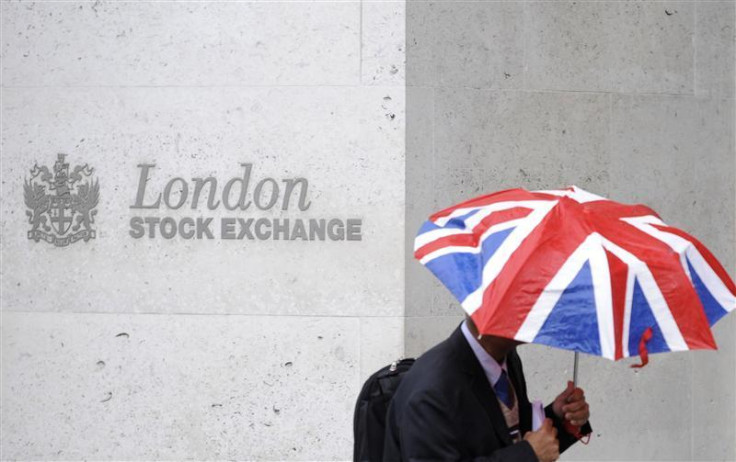Brexit: City of London to lose out if €25bn merger between LSE and Deutsche Boerse goes ahead
Merger will allow ECB to have continued control over UK financial markets even after Brexit.

A research commissioned by Deutsche Boerse has revealed that the proposed €25bn (£22bn) merger between the German exchange and the London Stock Exchange is likely to trigger an outflow of billions of pounds of derivatives trading from the UK to Frankfurt.
The report raises fresh questions on whether the deal, which will have to be approved by the Bank of England, will be in the City of London's interests, The Times reports.
Dick Schiereck, the chairman of corporate finance at Technische Universitat Darmstadt, wrote in the report: "Deutsche Boerse has a good chance of winning significant long-term market share in the areas of interest rate and currency trading and relocating trading from London to Frankfurt if the market participants in London are given unrestricted access to superior trading platforms in Frankfurt."
In his report, Professor Schiereck makes several references to the luring of bond trading from London to Frankfurt in the 1990s. It is still seen in the City as one of the biggest losses of business in the UK financial services industry, the newspaper said.
"There is a history of derivatives trading shifting from London to Frankfurt. Although no significant trading in listed derivatives takes place in London, there is an extremely large market for [over-the-counter] interest rate risk and currency risk.

"A merger between Deutsche Boerse and the London Stock Exchange could even offer the prospect of structural change here," Schiereck said.
The location of clearing is going to be a major issue as senior eurozone politicians want to force euro-denominated clearing out of London and into the eurozone.
Xavier Rolet, the chief executive of the LSE, had warned MPs last week that more than 200,000 jobs will be lost if euro clearing moved out of the UK.
In his report, Schiereck said that merging the German exchange with its rival in London would allow the European Central Bank to "exercise control over UK financial markets even after Brexit".
The supervisory and regulatory bodies will retain their ability to intervene in London's financial centre, with its outstanding position in currency and interest rate derivatives trading, especially if clearing and settlement processes were to be integrated in Frankfurt.
Deutsche Boerse did not comment on the contents of the report, only saying that it reflected the author's opinions. The exchange's spokesman, however, did confirm that it had commissioned the report.
Merger progressing
In December 2016, the LSE confirmed that it had started talks with Euronext on the sale of a clearing arm to facilitate the merger with Deutsche Boerse.
The merger is set to create one of the biggest exchange firms in the world. The European Commission had raised concerns over the merger and to address anti-trust concerns, LSE said it planned to explore the sale of LCH SA, LCH Group's French-regulated operating subsidiary.
If the merger goes ahead, LSE shareholders will own 45.6% of the new holding company, while the rest will be controlled by Deutsche Boerse shareholders. The merged entity would maintain headquarters in both Frankfurt and London.
© Copyright IBTimes 2025. All rights reserved.






















